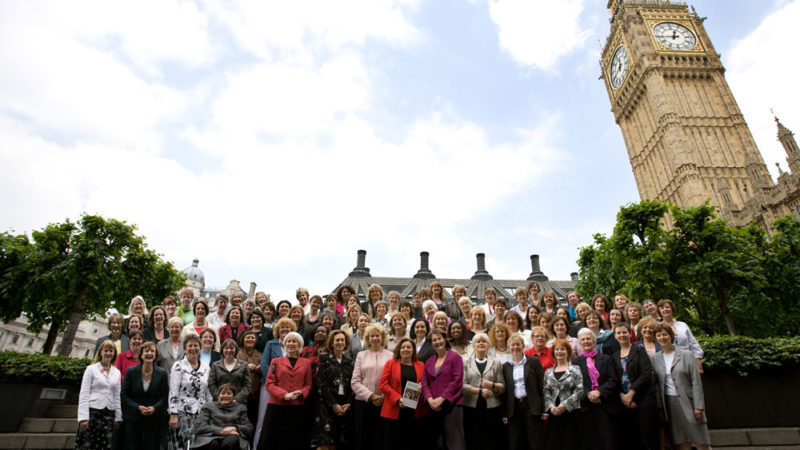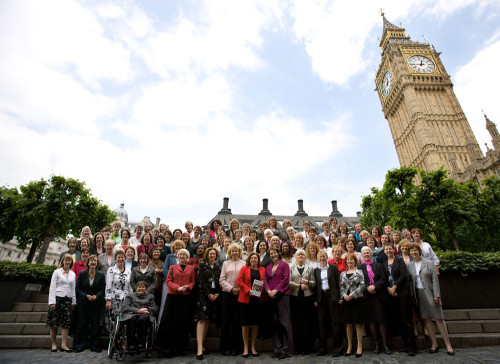
The perennial issue of All Women Shortlists (AWS) has raised its head again, with Cynon Valley CLP extremely disgruntled about having an AWS imposed for its parliamentary selection after having already had a woman MP, Ann Clwyd, for well over two decades.

Things seem to be escalating, with rumours of Ms Clwyd withdrawing her retirement and fighting the selection if it is an AWS, and CLP officers saying they will “go on strike” and not help administer the selection process.
How did we get into this sticky situation?
First, because sadly there are not enough CLPs that volunteer to have an AWS selection to avoid the NEC having to pick large numbers to do it involuntarily. As socialists we are supposed to want equality and fairness. That must mean having a PLP that is broadly representative of the people who vote for us. We will not achieve that until we have a PLP that has 50% women MPs. Every method other than AWS that has been tried – training, mentoring, cajoling, begging, incentivising – has failed. Allowed to make a choice, all but the most progressive CLPs end up picking male candidates. The only way to increase the number of women MPs at any kind of reasonable pace is to impose AWS selections. The percentage of vacant seats that are determined to have an AWS selection determines how fast the PLP will become representative, as only a small number of Labour-held seats come up in any Parliament. This means there will be individual men that will be disgruntled because they felt they had a particular claim to a particular seat. They are usually wrong – the highly competitive nature of all selections recently means there is no such thing as a “favourite son” even in an Open selection – members are just as likely to reject the local establishment’s bloke for an outsider who works harder in the selection or is objectively more talented as the NEC is to impose an AWS. That doesn’t stop male candidates who feel they have been “blocked” from understandably feeling disgruntled, nor CLPs that may feel they have been given a narrower choice than they wanted.
But this is the kind of disgruntlement that ought to be expressed by moaning over a pint and then getting on with selecting and electing the best woman candidate available.
Because although it is tough if you have set your heart on being the MP for your home town and you can’t run, personal ambitions are not actually objectively that important compared to the big picture of a serious socialist movement wanting to promote equality in its own elected representatives.
Second, whilst enforcing AWS can only be achieved through the rule book, we haven’t done the hard work of explaining to CLPs and members why we are doing this. If there are Labour activists who are not seriously committed to equal representation of women, and CLPs that have to be forced to pick women because they are too institutionally biased to do it because it’s the right thing to do, then that doesn’t just reflect badly on those CLPs, it reflects badly on the national party. How are we supposed to sell values of gender equality and women’s liberation to the public if we haven’t ensured those values are universal in our own ranks?
Third, the NEC needs to be a lot more up front about exactly how many AWS selections it needs to achieve an equal PLP. If the target was more publicly stated, and prospective male candidates knew that a very large number of seats would be AWS from the start, their expectations would be managed and they wouldn’t be so disappointed. They might even start looking at the other fulfilling ways of being heavily involved in political life that don’t involve having the letters “MP” after your name.
Finally, the NEC needs to be a lot more transparent about how it picks which seats are AWS and which have Open selections. This would reduce the number of allegations of stitch-ups, of the use or non-use of AWS favouring particular candidates of either gender. It should do this by publishing the rationale of its decisions. I was on the NEC Organisation Committee and participated in lively debates about which seats should be AWS. There were logical criteria applied – a complex matrix about the geography, electoral threats, previous MPs and candidates, overall context of women’s representation in the relevant region, nation, county or borough. And, yes, when a decision was on the cusp, party staff advised us that the ultimate decision was legitimately political and that was why we as elected NEC members took them, not them as the party’s civil servants.
This is difficult stuff for people to swallow. But if we are serious about changing society to make it more equal, we have to start with tough decisions in our own party.



More from LabourList
Key local council elections to watch for clues on our general election chances
Andy Burnham manifesto: Greater Manchester mayor reveals three key election pledges in bid for third term
‘Labour should grasp the chance to secure EU visa deal for young workers’